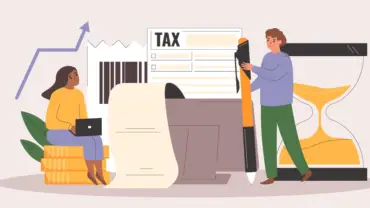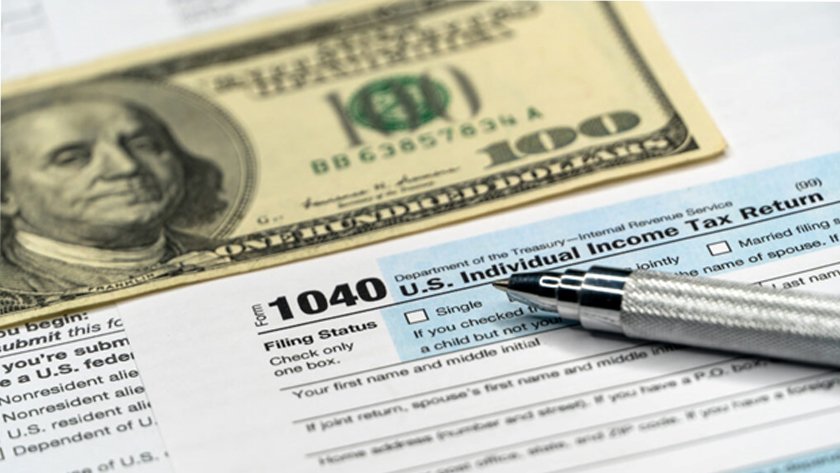Tax season can be a daunting time for many people, especially if they are not sure how to optimize their tax returns. But imagine having a guide that helps you navigate the complex world of tax laws and regulations and shows you how to save money and reduce your tax liability. This is where smart tax strategies for small business come into play, offering every taxpayer clarity amidst the daunting task of tax management. From maximizing deductions to understanding tax credits, these strategic approaches unfold many opportunities to save money and reduce tax burdens. So, let’s explore the four key steps to maximize your returns with smart tax strategies for every taxpayer and help you achieve your financial goals.
Table of Contents
Introduction
Navigating the complexities of tax laws can be daunting, but understanding and implementing smart tax strategies is essential for maximizing your returns. Whether you’re an individual taxpayer or running a small business, this blog will guide you through various tactics to enhance your tax efficiency.
Understanding Your Tax Bracket
The Progressive Tax System Explained
The United States operates under a progressive tax system, meaning the rate of taxation increases as income rises. It’s crucial to understand which tax bracket you fall into, as this determines the portion of your income that is taxable.
How Tax Brackets Affect Your Finances
Knowing your tax bracket aids in planning and estimating your tax liabilities or refunds. This knowledge is the foundation of effective tax strategies, helping you make informed financial decisions throughout the year.
Leveraging Tax Deductions and Credits
The Power of Deductions
Tax deductions lower your taxable income, ultimately reducing your tax bill. Common deductions include mortgage interest, state and local taxes, and charitable donations. Utilizing these deductions effectively can lead to significant savings.
Maximizing Benefits with Tax Credits
Tax credits provide a dollar-for-dollar reduction in your tax bill. Credits like the Child Tax Credit or the American Opportunity Credit can be more beneficial than deductions, as they directly reduce the amount of tax owed.
Smart Tax Strategies for Small Business
Deductible Expenses for Small Businesses
Small businesses have unique opportunities for tax savings. Deductible expenses include office supplies, travel costs, and certain types of insurance. Understanding and applying these deductions can substantially reduce a small business’s taxable income.
Utilizing Business Tax Credits
Business tax credits, such as the Small Business Health Care Tax Credit or the Work Opportunity Tax Credit, are essential tools for reducing a business’s tax liability. Leveraging these credits can be a game-changer in the financial health of a small business.
Itemizing vs. Standard Deduction
When to Itemize Deductions
Itemizing deductions can be beneficial if your individual deductions exceed the standard deduction. It involves meticulous record-keeping and can be advantageous for those with high medical expenses, substantial charitable contributions, or considerable mortgage interest.
Benefits of Standard Deduction
For many taxpayers, the standard deduction offers a simpler and more beneficial route. It’s a fixed amount that doesn’t require detailed documentation, making the tax filing process quicker and easier for most people.
Advanced Tax Planning Techniques
Retirement Savings Strategies
Contributing to retirement accounts like 401(k)s or IRAs can significantly lower your taxable income. These contributions are either tax-deductible or offer tax-free growth, providing long-term financial benefits.
Educational Savings Plans
Investing in 529 plans or Coverdell Education Savings Accounts can offer tax advantages for those saving for educational expenses. Contributions grow tax-free and can be withdrawn tax-free for qualified educational expenses.
Record Keeping and Documentation
What Records to Keep
Good record-keeping is crucial for effective tax planning. Keep documents such as W-2s, 1099s, receipts for deductible expenses, and records of charitable contributions. These records are essential for accurate tax filing and in case of an IRS audit.
Organizing Tax Documents
Organizing your tax documents throughout the year can streamline the tax filing process. Use a filing system to categorize receipts and documents, making it easier to access them during tax season.
Conclusion
In conclusion, smart tax strategies can have a significant impact on your financial well-being. Whether you’re an individual taxpayer or a small business owner, understanding tax basics leveraging deductions and credits can help you keep more of your money.
If you’re a small business owner looking for expert guidance on tax strategies tailored to your specific needs, consider contacting Barron Income Tax. Our team of experienced tax professionals specializes in assisting small businesses in maximizing their returns while ensuring compliance with tax laws.
At Barron Income tax services, we specialize in tailoring the right service for our clients. We understand every customer has Read more
When you first start filing your tax returns, one of the many questions that come into mind is; should I Read more
With rules changing on sudden notice and many businesses having to enforce limits & restrictions on their premises. It is Read more
If you are the one who engages in business outside his country or deals with overseas legal documents, you need a Read more
After months of negotiations the $1,400 stimulus check has been approved and ready to go! In this article, we will Read more
Are you tired of struggling with bookkeeping mistakes that can jeopardize your business? Look no further! Barron Income Tax has Read more
Tax season frequently emerges as one of the most anxiety-inducing periods in the lives of taxpayers. Meeting the stringent filing Read more
Are you a small business proprietor dreading the impending tax season? The prospect of delving into heaps of paperwork and Read more








